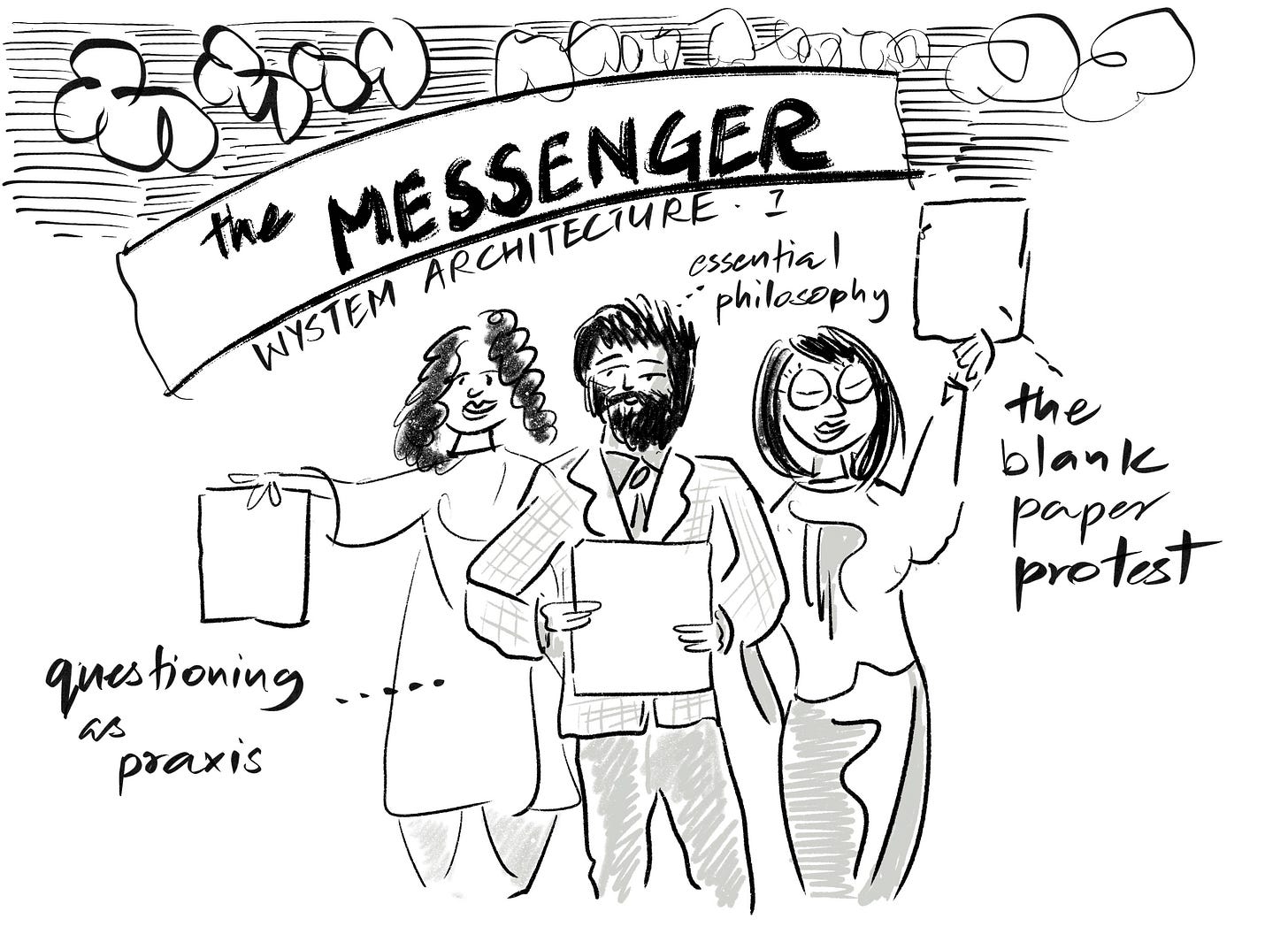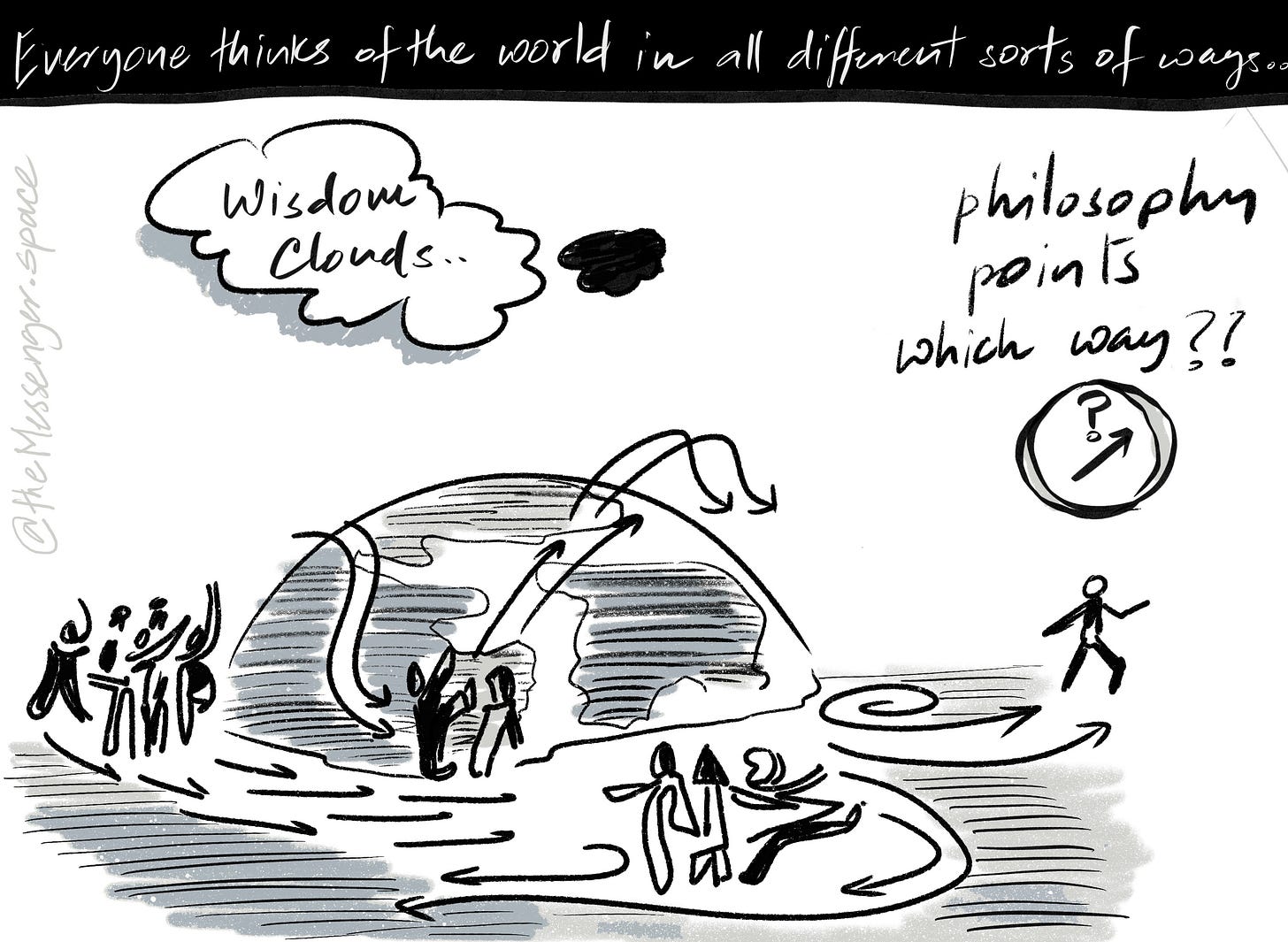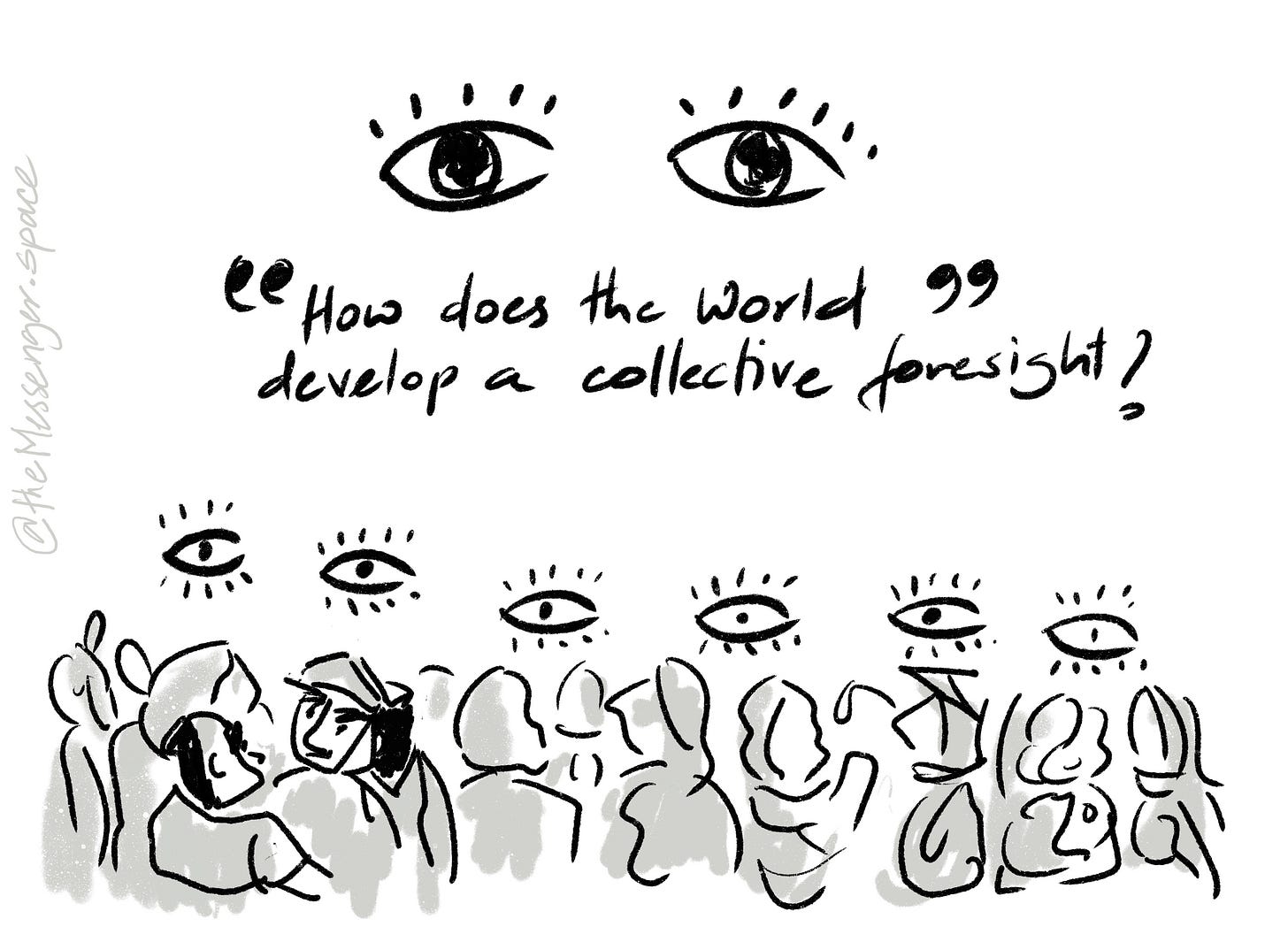Wystem Architecture, Part 1
Leszek Kołakowski (1927–2009) was an influential Polish philosopher and historian of ideas, best known for his critical analysis of Marxism and his role as a major intellectual critic of communist ideology. Initially an orthodox Marxist and member of the Polish United Workers’ Party, Kołakowski became increasingly disillusioned with Soviet-style Marxism, especially after witnessing its practical realities and the suppression of intellectual freedom in Poland.
His early career was marked by his efforts to reform and humanize Marxism, but his outspoken criticism, particularly of Stalinism, led to his expulsion from the Communist Party in 1966 and from his professorship at the University of Warsaw in 1968. Forced into exile, he spent most of his subsequent career at the University of Oxford as a Fellow of All Souls College, and also taught at leading universities in North America.
LK's most famous work is a thick volume called "Main Currents of Marxism,” and after reading the capsule bio in the previous two paragraphs, you might guess that the book mixes criticism with praise. You would be right, but we don't want you to read all its 1576 pages. In fact, we will be quite happy if you paid attention to the first line of its introduction, where Kolakowski says:
KARL MARX was a German philosopher.
This might confuse many people, for they think of the bearded exile as a revolutionary, a critic of capitalism than as a philosopher. Kolakowski has thought of that objection, for in the second line of the introduction, he says:
This does not sound a particularly enlightening statement, yet it is not so commonplace as it may at first appear.
One reason is because Marx himself had a low opinion of philosophers. Karl Marx’s famous statement about philosophy and philosophers is:
The philosophers have only interpreted the world, in various ways. The point, however, is to change it.
This quote is the eleventh and final thesis from his 1845 work, Theses on Feuerbach. In this context, Marx was criticizing previous philosophers for focusing only on understanding and interpreting the world rather than engaging in practical efforts to transform it. For Marx, the true value of philosophy lay not in contemplation or interpretation alone, but in its role as a guide for transformative action, what he called “praxis.”
We don't have to be Marxists to agree that changing the world (for the better!) is a good idea, but why do you need philosophy for that purpose? Why not just do it? Easy if you know exactly what to do, but wicked problems rarely work that way. You do something, something else happens, someone else gets offended and you have to take everyone along.
Fair enough, but isn't taking everyone along the politician's job, not a philosopher's? Yes, but a politician who can juggle various demands, absorb scientific and economic facts and theories, understand the complexities of climate change and AI, persuade the reluctant and tell a good story that weaves in all of these momentous developments is a philosopher! We imagine the philosopher as a profession like civil engineering or urban planning or psychotherapy, i.e., a craft that’s practiced out there in the world with the intent of making it better. Who cares what we call such a person as long as there's a blueprint for how one is supposed to become such a person. We want to channel the designer/maker/engineer spirit of this hypothetical person in a big way, as some of our work on Ecological Programming Interfaces has hinted at.
Over the next few weeks, we will be sharing our version of that blueprint. Let’s start with a few personas we want to inhabit.
Philosopher Types
The philosophers’ challenge to move beyond interpretation toward transformation raises a crucial question: what kinds of philosophical thinking do we actually need to change the world effectively? The traditional categories of philosophers, while illuminating, may not capture the full range of intellectual capabilities required for tackling today's polyconflicts.
Consider the classification offered by philosopher and intellectual historian Justin E. Smith, who identifies six archetypal philosophers: the curious, the sage, the ascetic, the gadfly, the mandarin, and the courtier. Each serves a distinct function. The curious philosopher pursues empirical truth about the natural world, while the gadfly challenges social conventions and power structures. The sage and ascetic focus on existential wisdom—how to live well and find inner peace through different paths of self-cultivation. Finally, the mandarin and courtier engage directly with power, serving as advisors and navigators of political dynamics.
If our goal is to change the world—to address climate change, manage artificial intelligence, reduce inequality, and navigate other civilizational challenges—we need philosophical approaches that transcend these traditional categories. We need thinkers who can imagine new worlds, see wholes rather than just parts, who can design new frameworks for collective action, and who can map connections across seemingly disparate domains.
This suggests at least four additional philosophical types essential the future:
The Worldmaker is a philosopher who speculates on parallel or alternate worlds that can inform ours. Someone who helps us imagine courts that allow rivers to file a suit against their polluters or a city in which pigeons have homes and dogs can bear witness to crimes.
The Elephant sees the whole picture where others see only parts. While most experts focus on specific aspects of complex systems—like the blind men in the ancient parable each touching different parts of an elephant—the Elephant philosopher seeks out broader patterns and connections.
The Architect builds new frameworks for collective action and thought. They design not just physical spaces but also institutions and systems that help people work and think together more effectively. Think of planning a ward level climate adaptation committee in Bangalore: what would you need to do so? Sidebar: the architect is in charge of designing the Wystem.
The Connector operates like a philosophical ecologist, systematically mapping relationships between disparate entities: ideas, people, organizations. They are primarily trust-makers. They recognize when differences matter and when commonalities should be emphasized, bringing new elements into existing frameworks while tracing previously hidden connections.
Together, these four types exemplify the art of changing the world rather than merely interpreting it. Each transcends traditional philosophical roles by combining the empirical rigor of the curious philosopher with the practical wisdom of the mandarin, while operating beyond the constraints of institutional power or disciplinary boundaries. Through their distinct yet complementary approaches - imagining alternative realities, perceiving systemic wholes, designing new frameworks, and mapping vital connections - they create the intellectual infrastructure needed for meaningful social transformation.
The architecture we'll be sharing over the next few weeks recognizes that effective world-changing requires not just political skill or technical expertise, but also includes these four philosophical capacities: seeing wholes, designing systems, and connecting across domains.
Conclusion
The integration of philosophical thinking with practical world-changing requires new types of thinkers who can bridge traditional divides between theory and action, local and global, parts and wholes. The four philosophical archetypes we've identified - the Worldmaker, the Elephant, the Architect, and the Connector - represent crucial capacities needed to address today's complex challenges. Together, they embody a vision of philosophy as transformative practice.
These roles point toward a new kind of philosophical practice that's both rigorous and practical, visionary and grounded. Like civil engineers or urban planners, these philosopher-practitioners work in the world with concrete objectives, but their toolkit includes both traditional philosophical methods and new frameworks for collective action. Through their complementary approaches - imagining alternative futures, seeing systemic wholes, designing frameworks for collaboration, and mapping vital connections - they create the intellectual and practical infrastructure needed for meaningful social transformation.
As we face unprecedented global challenges, from climate change to artificial intelligence, cultivating these philosophical capacities becomes not just intellectually interesting but practically essential. The question now is how to develop and support such thinkers through appropriate institutions.
Socratus being one such institution.









